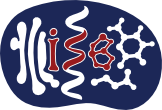Yeaton A, Cayanan G, Loghavi S, Dolgalev I, Leddin EM, Loo CE, Torabifard H, Nicolet D, Wang J, Corrigan K, Paraskevopoulou V, Starczynowski DT, Wang E, Abdel-Wahab O, Viny AD, Stone RM, Byrd JC, Guryanova OA, Kohli RM, Cisneros GA, Tsirigos A, Eisfeld AK, Aifantis I, Guillamot M. The Impact of Inflammation-Induced Tumor Plasticity during Myeloid Transformation. Cancer Discov. 2022 Oct 5;12(10):2392-2413. doi: 10.1158/2159-8290.CD-21-1146. PMID: 35924979; PMCID: PMC9547930.
Abstract
Clonal hematopoiesis (CH) is an aging-associated condition characterized by the clonal outgrowth of mutated preleukemic cells. Individuals with CH are at an increased risk of developing hematopoietic malignancies. Here, we describe a novel animal model carrying a recurrent TET2 missense mutation frequently found in patients with CH and leukemia. In a fashion similar to CH, animals show signs of disease late in life when they develop a wide range of myeloid neoplasms, including acute myeloid leukemia (AML). Using single-cell transcriptomic profiling of the bone marrow, we show that disease progression in aged animals correlates with an enhanced inflammatory response and the emergence of an aberrant inflammatory monocytic cell population. The gene signature characteristic of this inflammatory population is associated with poor prognosis in patients with AML. Our study illustrates an example of collaboration between a genetic lesion found in CH and inflammation, leading to transformation and the establishment of blood neoplasms.

